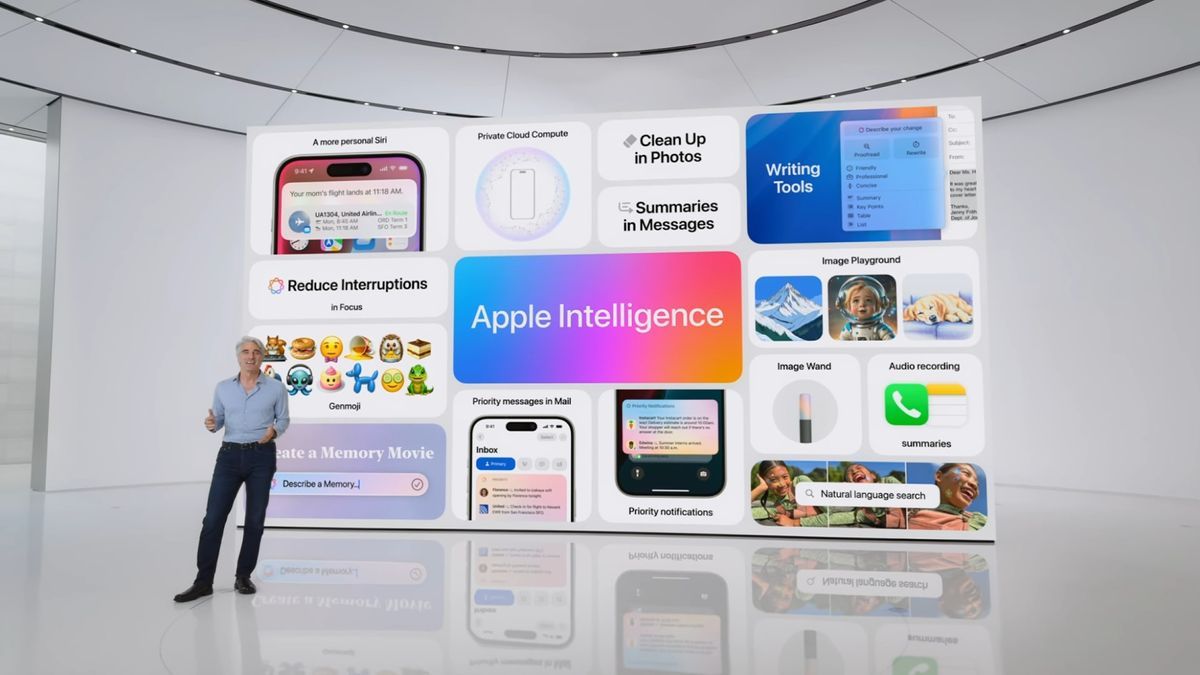When Apple unveiled Apple Intelligence at WWDC 2024 in June, it made it clear that the artificial intelligence (AI) system would be free, with no tiered payment options like those found at rivals like ChatGPT. But while that's the situation for now, a new report suggests it might not last.
In his latest Power On newsletter, Bloomberg journalist Mark Gurman has given clues about Apple's future plans. In the article, Gurman explains that “although Apple Intelligence will be free at first, the long-term plan is to make money with [its] capabilities”.
This could be achieved by keeping the basic Apple Intelligence model free and launching something like “Apple Intelligence+” along with it. This would have “additional features that users would pay monthly fees for, just like iCloud,” Gurman says.
It may not be the only way Apple is trying to make money with Apple Intelligence. The company will also “get a share of subscription revenue from each AI partner it brings on,” Gurman believes.
With OpenAI already registered and Google Gemini supposedly on the way, that could be a small source of income for Apple.
The next iCloud
It makes sense that Apple would be looking to get some sort of revenue out of Apple Intelligence. The system is being integrated into nearly every aspect of Apple’s mobile and desktop operating systems, with a host of features set to debut when iOS 18 and macOS 15 launch this fall.
Apple will undoubtedly have spent a huge sum on research and development for these features and will want to recoup some of that cost. In addition, Apple is also putting in place a large network of servers that will help power Apple Intelligence. That alone will be expensive, not just to build, but also to maintain over the long term.
With this in mind, it makes sense for Apple to extend Apple Intelligence to as many products as possible in an effort to prompt users to upgrade their devices. According to Gurman, the company aims to add Apple Intelligence to the Apple Vision Pro sometime in 2025. Its main hurdles are creating an easy-to-use interface for the AI and making sure its servers don't become overloaded by the additional demand.
However, Gurman cautions against expecting Apple Intelligence to land on the HomePod. Apple Intelligence requires at least 8GB of memory, but the HomePod mini only has 1GB of RAM. Meanwhile, the regular HomePod is “too low-volume a product to waste engineering time on,” Gurman says.
Instead, Apple plans to make it “an entirely new robotic device with a display that includes Apple Intelligence at its core.” That sounds a lot like a device we’ve seen in rumors before, albeit with an AI twist.
Given that Apple plans to roll out Apple Intelligence to so many different devices, it's no surprise that the AI system could become the next iCloud, with a subscription option that puts more powerful tools at your disposal. And according to Gurman, Apple Intelligence will receive more frequent updates than iCloud, which could make it one of the more tempting options among Apple's various subscription services — and possibly part of the Apple One package.








